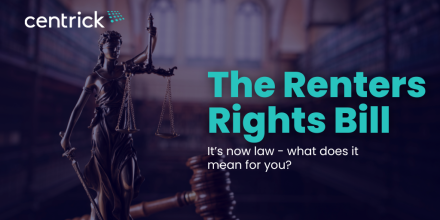The UK general election has been announced for the 4th of July 2024 – from a rainy lectern outside Downing Street to a backdrop of D-Ream’s “Things Can Only Get Better”, Prime Minister Rishi Sunak confirmed what many had expected, a UK general election this summer. All elections and their final outputs can create substantial consequences for various sectors, with the property industry often being a key campaigning ground. Policies enacted by the new government can significantly influence market dynamics, regulation, property values, investment opportunities, and overall market confidence. So, what do we know so far and what might we expect over the coming months?
Policy Shifts and Regulatory Changes to the Property Sector
One of the most immediate impacts of a general election on the property industry is the potential for major policy shifts. Each political party presents distinct strategies for handling housing and property-related issues. For example, a government led by a party emphasizing affordable housing may introduce policies that encourage the construction of new homes, provide subsidies for first-time buyers, increase the obligations on affordable homes or implement rent controls to protect tenants. According to a report by The Times, such measures could stimulate the housing sector and make homeownership more accessible, although they might also reduce profit margins for developers and landlords both private and institutional.
Conversely, a government with a focus on deregulation and market liberalization might prioritize reducing taxes and encouraging private investment in property. This could lead to increased development activity and attract foreign investors, as discussed in a BBC analysis. However, this approach could also exacerbate issues like housing affordability and inequality if not balanced with adequate social policies.
With regulation already at a variety of stage in the parliamentary process including; Renters Reform Bill, Biodiversity Net Gain, Building Safety Act, Levelling up and Regeneration Act of 2023 and the Leasehold and Freehold Reform Bill it’s clear that there is much to watch across the manifesto’s as they emerge in the lead up to the general election.
Market Confidence and Economic Stability
General elections often introduce a period of uncertainty, which can affect market confidence. Investors and developers may adopt a cautious approach in the run-up to an election, leading to a temporary slowdown in market activity, this isn’t always the case as businesses speculate and seek advantage in the market. Uncertainty regarding potential policy changes and economic direction can cause fluctuations in property prices and transaction volumes but can also create opportunities for buyers, sellers and investors alike.
Post-election, as we’ve seen in various cycles, market confidence can either be bolstered or shaken depending on the election outcome. A clear and decisive victory, perceived as business-friendly, can lead to a surge in property investments and market activity. However, a hung parliament or a government seen as unstable may result in prolonged uncertainty, dampening market sentiment and delaying major property transactions. The Times notes that historical data often shows a post-election bounce in market activity when the results are clear and the winning party is seen as capable of maintaining economic stability.
Interest Rates and Financing
The outcome of a general election can also influence monetary policy, affecting interest rates and, consequently, the property market. A government with expansionary fiscal policies might lead to higher interest rates as the Bank of England and Ex Chequer attempt to control inflation. Higher interest rates increase the cost of borrowing, making mortgages and property investments more expensive, which can dampen demand for both residential and commercial properties.
Alternatively, a government focused on austerity and reducing national debt might create a low-interest-rate environment to stimulate economic activity. Lower interest rates make borrowing cheaper, potentially boosting property purchases and investments. However, prolonged low interest rates can also lead to property price bubbles, posing long-term risks to the economy. The BBC highlights how changes in interest rates following elections have historically impacted housing affordability and investment trends.
Taxation and Investment Incentives
Domestic and International tax policies are another significant area where election outcomes can impact the property industry. Governments often use tax incentives to influence the property market. For example, tax breaks for first-time homebuyers, reductions in capital gains tax, and incentives for energy-efficient buildings can all stimulate different segments of the market.
A new government might also introduce or abolish taxes that directly impact property owners, such as residential property taxes, stamp duties, and inheritance taxes or levies on business and institutional or private landlords. These changes can alter the attractiveness of property investments. For instance, higher stamp duties might discourage property transactions, while reduced property taxes could make owning real estate more appealing. According to The Times, tax policy changes are among the most closely watched aspects of post-election shifts, as they have immediate and tangible impacts on the market.
Social and Environmental Considerations
Modern elections increasingly focus on social and environmental issues, reflecting broader societal concerns. Housing affordability, homelessness, and sustainable development are often key electoral topics. The winning party’s stance on these issues will shape the property industry’s priorities and practices.
A government committed to reducing carbon emissions might implement stricter building codes, requiring new developments to meet higher environmental standards. This could increase construction costs but also promote innovation in sustainable building practices. Additionally, policies aimed at improving housing affordability, such as rent controls or the development of social housing, will directly impact the rental market and property values. The BBC has reported on how recent elections have seen a growing emphasis on these issues, highlighting the evolving landscape of the property industry in response to political pressures.
This July’s UK general election will be a pivotal event for the property industry, setting the stage for policy, economic, and market dynamics that will unfold over the ensuing years. Property developers, investors, homeowners, and renters must all navigate the changes brought about by the new government’s policies. While the election can introduce a period of uncertainty, it also presents opportunities for those who can adapt to the new political landscape. Understanding the potential impacts of election outcomes on property-related issues is crucial for making informed decisions and positioning oneself advantageously in a shifting market. As the political dust settles, the property sector must remain agile and responsive to the new realities shaped by the electoral process.
What Will Happen If The Labour Party Get A Majority?
Recent polling has suggested that the Labour Party are due to win the general election and with the prospective Labour majority comes the likelihood of a new homebuilding programme. The party has vowed to ‘Get Britain Building Again’ in its manifesto. The party has vowed to preserve green belt spaces and has promised to construct 1.5 million new homes within the first five years of their government. There is a particular onus on providing homes for first time buyers, as well as creating new towns across the UK.
But how will Kier Starmer deliver such an ambitious new homes programme? Here is how he claims he will solve the national housing crisis.
- According to the likely next prime minister, the Labour Party would re-work planning restrictions in order to reduce the backlog of developments awaiting approval.
- The green-belt initiatives are part of a comprehensive set of Labour planning policies. These policies include reinstating mandatory local housing targets abolished by the Tories, granting planning authority to combined councils, and introducing new design codes to improve construction quality.
- The party has pledged to fund 300 new planning officers to strengthen council resources.
- The Labour Party state that they will review the “hope value” system, which can result in landowners receiving payments significantly above the market rate based on potential future value with planning permission.
- Labour also intends to quickly establish an independent taskforce to identify suitable sites for several new towns, aiming to deliver homes on some of these sites within a single five-year parliamentary term.
What Will Happen If The Conservative Party Get A Majority?
Should Rishi Sunak’s Conservative Party get another term in office, a number of new housing regulations will be passed. In their manifesto, the Tories have stated that they will continue with their pledge to reduce ground rents and aim to cap ground rents at £250 before reducing them to peppercorn over time. The Conservative Party has also stated that it is still dedicated to delivering the Renters Reform Bill which would eliminate Section 21 evictions whilst strengthening landlord’s powers to evict anti-social tenants – you can find out more about the Renters Reform Bill and what it could mean for you here.
What’s more, the Conservatives have pledged to construct 1.6 million homes over their next term. How will they do this?
- By focusing on brownfield land in urban areas for the construction of new homes.
- Creating a ‘fast-track’ route for property developers across the UK’s largest cities.
- By eliminating the EU’s ‘nutrient neutrality’ regulations to immediately enable the construction of 100,000 new homes with local approval. Developers will be legally required to pay a one-time mitigation fee to ensure no net increase in pollution.
- Supporting local and small-scale builders by mandating councils to allocate land for their use.
- Revitalising the Affordable Homes Programme to provide housing across all tenures, with a focus on regenerating and enhancing housing estates.
Stay Up To Date With Centrick
As your local property experts, we’re here to provide you with all of the property news and insights on the UK general election. Have any specific questions? Fill out the form below to contact a member of our expert team – we’re on hand to help you navigate the property market as the UK general election looms.










